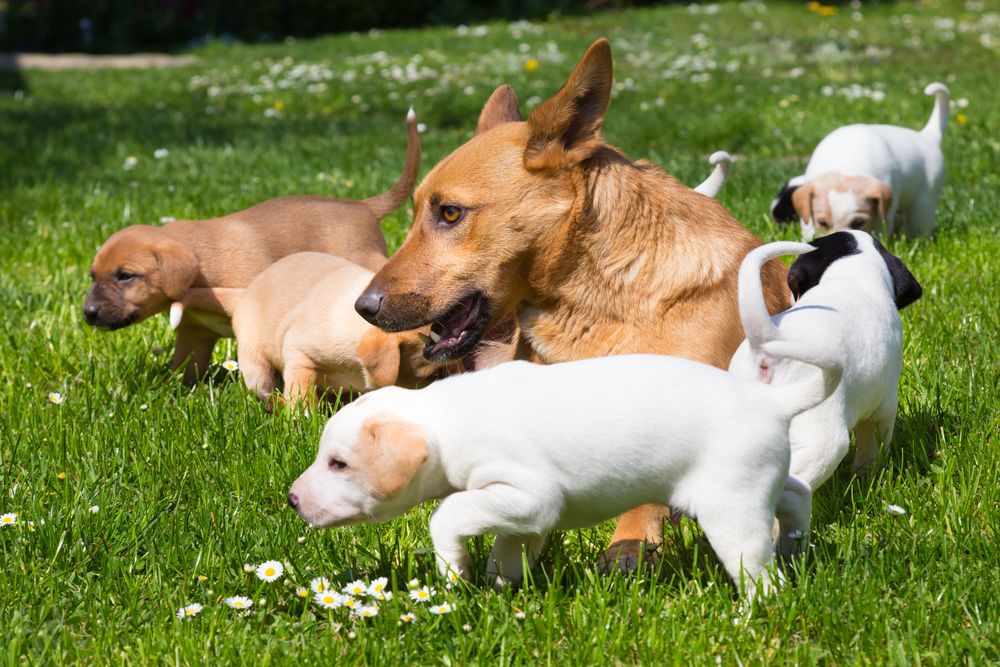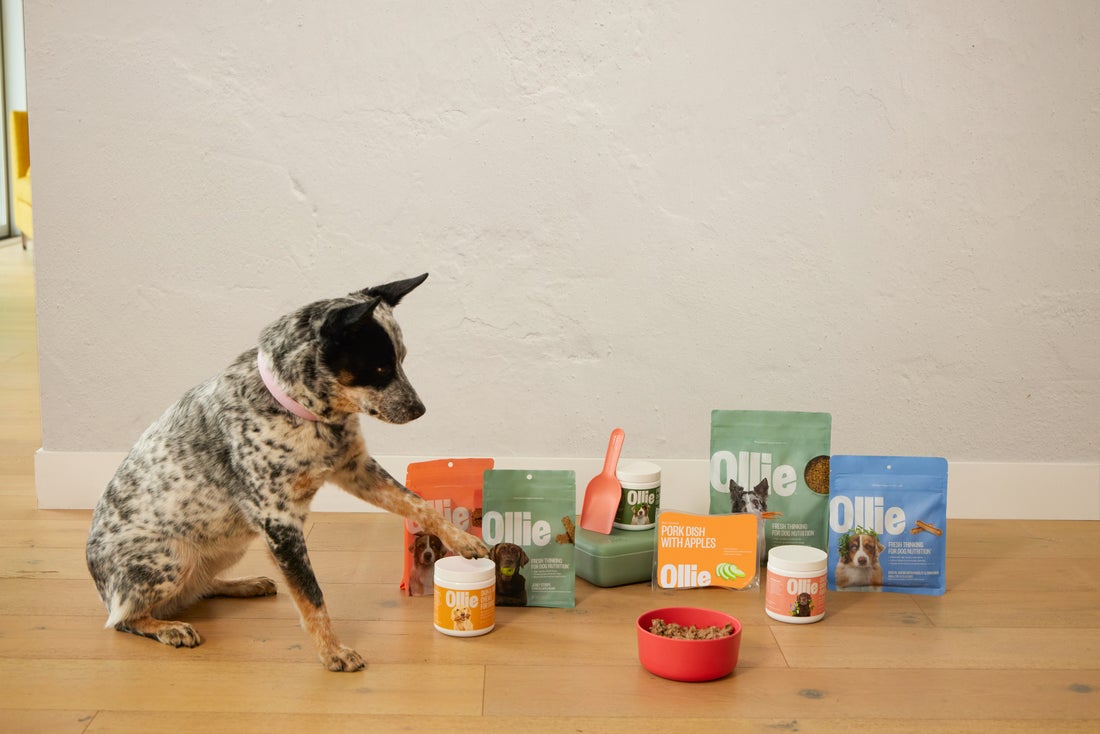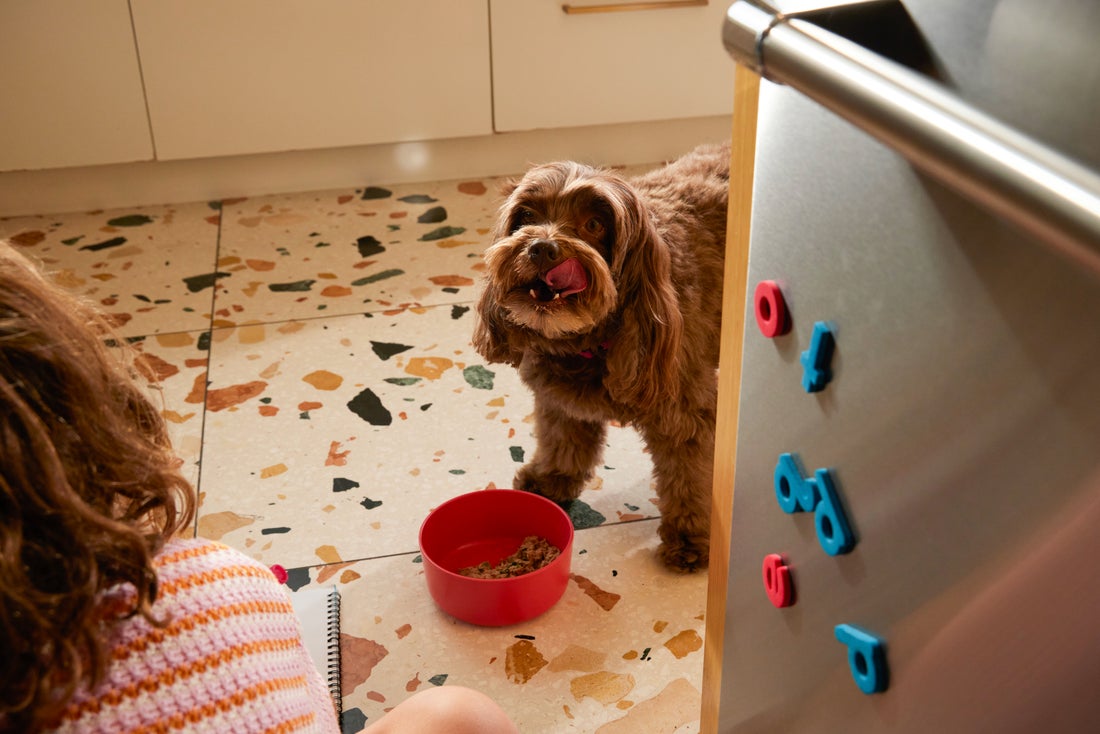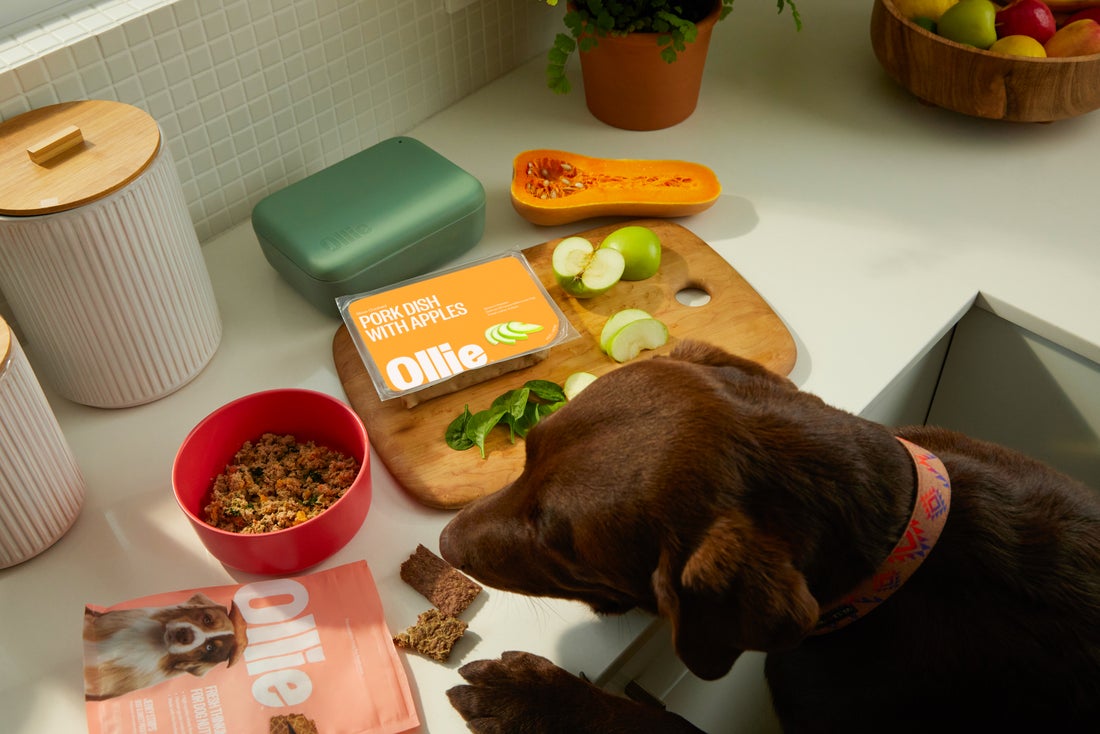Hey Ollie blog readers! We’re offering you an exclusive 60% OFF your starter box! Try now!
There’s nothing in the world cuter than a young puppy. When you meet your puppy for the first time you might be tempted to take them right home and start bonding. But should you do this? It depends on how old the puppy is and what type of dog they are.
In many states, there are laws prohibiting puppies from being taken from their mother too early. Generally speaking, your pup should be about 8 weeks old and ready to be separated from mom. These laws only apply to breeders or puppies that are being sold. Animal rescues and shelters may need to remove puppies from their moms earlier for reasons related to the mother or the puppies’ wellbeing.
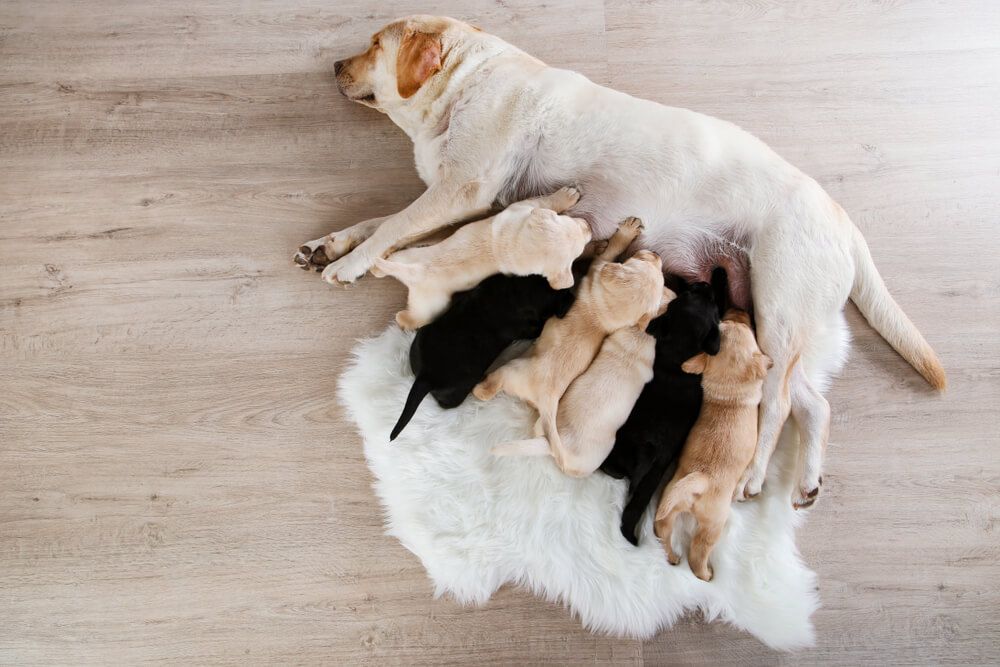
When is ideal to separate a litter?
1. When the puppies have fully transitioned to solid food
One of the reasons that puppies legally need to stay with their moms until 8 weeks of age is because for some pups it can take that long before they are eating 100% solid food. Most pups begin the gradual switch from their mother’s milk to solid food anywhere from 3-to-5-weeks-old,” says Dr. Jerry Klein, AKC chief veterinary officer. It can take until they are about 7 weeks old until they are fully eating on their own and don’t need to nurse from their mother. Dr. Klein further cautions that puppies who are prevented from nursing can display insecure behaviors for the rest of their lives.
2. The puppies have learned social skills from their mom and siblings
Puppies learn how the world works from their mother and siblings. They should learn to follow mom’s lead and how to play with each other as well as when enough is enough. If puppies are kept with their litter too long you run the risk of seeing overly dominant or submissive behaviors – so work with your breeder to ensure the timing is just right. Another consideration is puppies’ socialization period is critical to their development and runs until about 16 weeks old.
During this time your puppy is like a sponge, soaking in information about how the world works. You want them to be exposed to as many people, places, and things as they can – safely. This can include different surfaces, cars and bikes, old and young people, and different places. Remember to be careful until your puppy is fully vaccinated. Work with your breeder to understand how your puppy will be handled and what they will be exposed to before you bring them home. Many breeders will start crate and housetraining in the weeks before they send the puppies to their new homes.
3. If the puppy has had enough of their vaccines to safely travel
For smaller puppies who have to travel a great distance to their new homes, especially by plane, some breeders may recommend waiting until the pup is 10-12 weeks before traveling. This will allow the puppy to be further along on vaccines and have a stronger immune system. Remember that airports and rest stops that are crowded with people (and pets) can also have lots of germs that you don’t want to pass to your puppy.
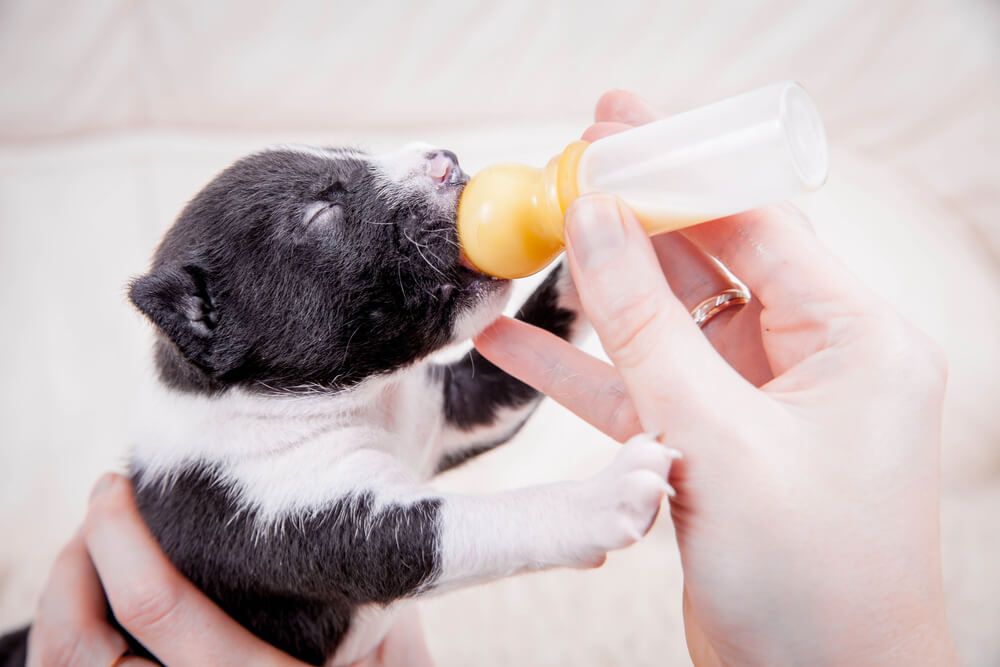
Risks of separating puppies from their mom too early
1. Your pup may not be fully developed
For the first two weeks of life, your puppy can’t see or hear and is completely dependent on mom. If you separate the puppy from mom in these early days, chances of survival are reduced. Even if you bottle-feed with a milk replacer there is a chance you could lose the puppy.
2. Your puppy may develop behavior issues
Puppies learn a lot from their mom and siblings. Separating a puppy from its mom and litter increases the possibility of behavioral issues down the road. While this is not a guarantee that you will see behavior problems, it is possible that a pup weaned too early will show signs of aggression, resource guarding, fearfulness, or have other behavior issues. These puppies may also be more challenging to train.
3. Your puppy may develop suckling behaviors
Some puppies who are separated from their moms to early suckle on their toys or a favorite blanket well into adulthood. This behavior may not be harmful and may actually be comforting to your dog. You do need to watch out for the behavior becoming compulsive. If you are concerned about this behavior, speak with your vet or a veterinary behaviorist.
Getting and raising a puppy is a challenging and rewarding experience. Start your puppy out on the right foot by ensuring they have had enough time with their biological mom before you bring them home. Most dogs have an average lifespan of 10-20 years meaning you will get plenty of time with your beloved best friend!
The Ollie blog is devoted to helping pet parents lead healthier lives with their pups. If you want to learn more about our fresh, human-grade food, check out MyOllie.com.
Tagged As:

The nutrition your dog needs,
the food they want.

Enjoying our articles? Subscribe our Newsletters and get new articles directly to your inbox
You might also like
18 July 2025
6 MINS READ
Can You Mix Fresh Dog Food With Kibble?
If you’re feeding your dog kibble but want to upgrade their bowl, you’re not alone. Many pet parents ask if they can mix fresh dog food with kibble to get some of the benefits of fresh food wi…
by Ollie Pets
18 July 2025
5 MINS READ
Does Fresh Dog Food Help With Weight Loss?
If you’ve noticed your dog carrying a few extra pounds, you’re not alone. According to the Association for Pet Obesity Prevention, over half of dogs in the U.S. are overweight or obese. Extra …
by Ollie Pets
18 July 2025
4 MINS READ
Is Fresh Dog Food Cooked or Raw?
When you hear “fresh dog food,” it’s normal to wonder if that means raw meat or something cooked. After all, fresh just means it’s not dry kibble or canned food packed with preservatives. …
by Ollie Pets
